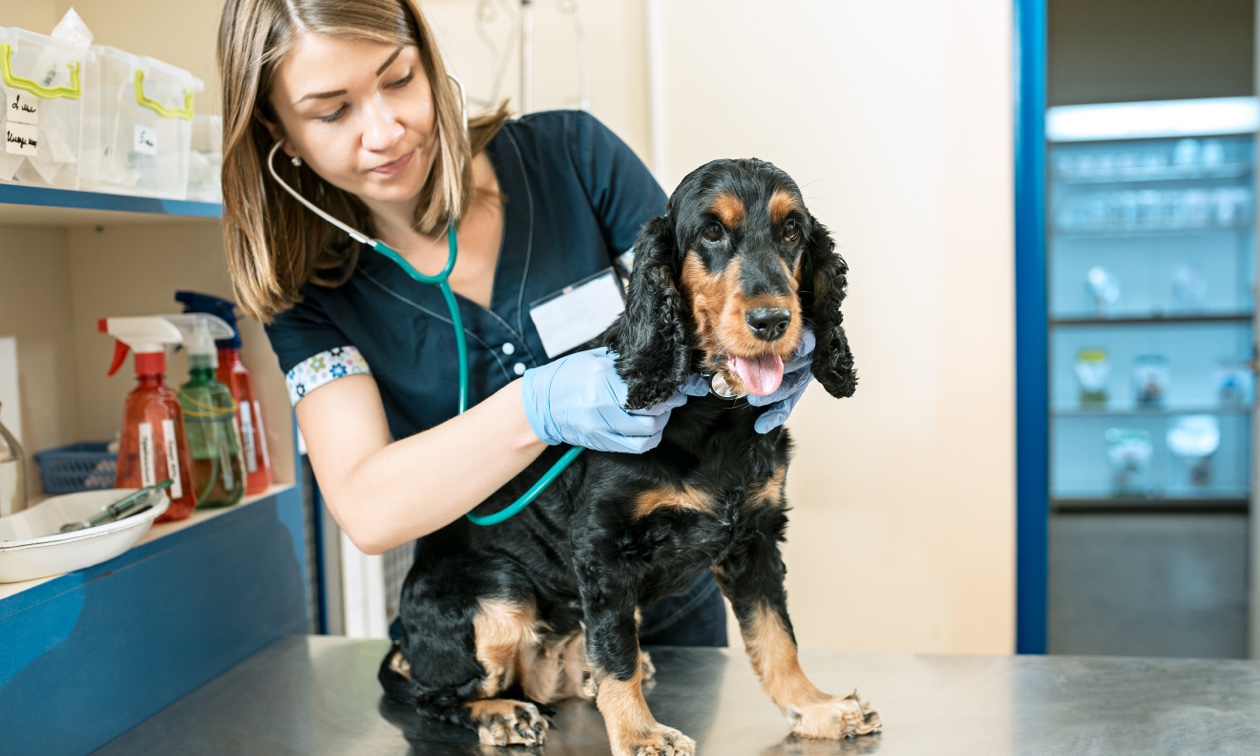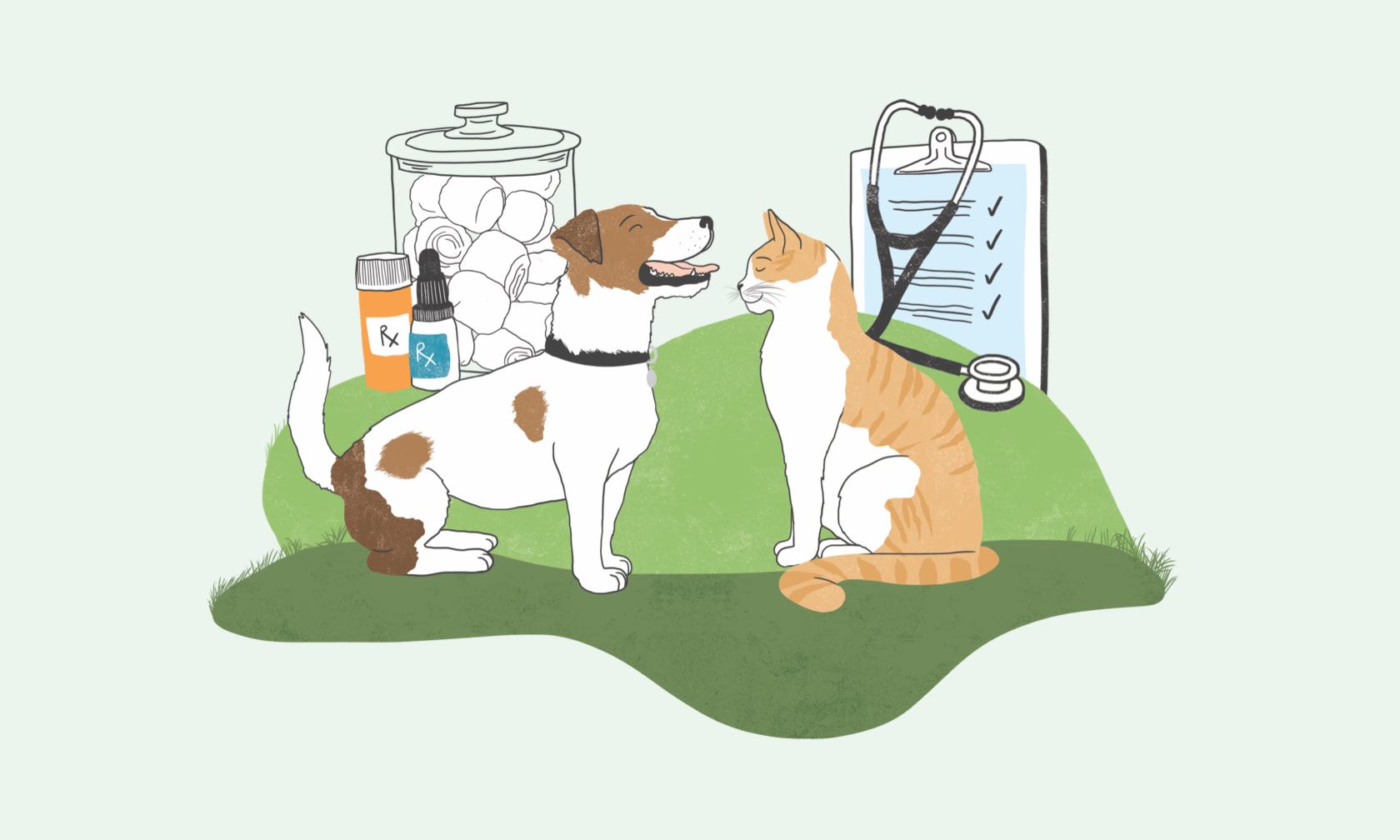Annual (or 6-month) check-ups, sometimes called “wellness visits,” can stop your pet’s suffering before it begins, save you money, and help you learn more about your pet. In fact, the best time to take your pet to the veterinarian is before they get sick or injured, and to practice what is called preventive care. Here are five reasons why your pet should have regular veterinary check-ups.
1. Your Pet Is a Master at Hiding Problems
Cats and dogs are good at putting on a brave face and have evolved to hide pain and disease. That means by the time you notice something is wrong, it’s because they’re in pain and can no longer hide it.
2. Your Veterinarian Is an Expert at Uncovering and Preventing Problems
Your veterinarian is trained to detect the subtle clues that can indicate a problem or illness. Regular pet check-ups allow your veterinarian to detect small signs, like changes in breathing, heart rate, eyes, and even minor swellings. These clues could indicate anything from digestive issues or kidney trouble to pain, cancer, and more.
What Veterinarians Look For During Physical Exams
Regular pet check-ups are typically the same every time. Your pet's veterinarian will examine various areas of their body to check for signs of illness or anything that differs from your dog or cat's "normal."
- Eyes
Eye exams can reveal glaucoma, increased blood pressure, certain cancers, fungal infections, and your pet’s overall nervous system health. - Ears
Ear exams help catch and prevent infections and other issues before they get serious. - Mouth
Bad breath could be a sign of poor dental health, an oral tumor, a lung problem, or even undiagnosed diabetes. - Neck
Rule out problems ranging from infections to cancer by checking to see if lymph nodes are swollen. - Chest
Heart murmurs and rhythm abnormalities can give vital clues to circulatory health, as well as blood, hormonal, and other conditions. - Abdomen
The abdomen holds many of your pet’s vital organs and other important structures. Your veterinarian can check for pain or enlargement of these organs. - Overall Health
Are your pet’s joints working properly? Are they overweight, or underweight? Your veterinarian will evaluate your pet’s overall health.

3. Wellness Check-Ups and Testing Can Help Save Your Pet From Pain, Suffering, and Disease
Your veterinarian is establishing a baseline for your pet during a wellness check-up. The more often they see your pet when they’re healthy, the easier it is to identify what’s wrong when they’re sick. Early detection through blood, urine, and stool tests can help determine and treat emerging issues before they become serious. Some of these common issues include:
Diabetes
Routine screening blood and urine tests, which may be part of your pet’s wellness check-up, can help catch diabetes and reveal if your pet is in a pre-diabetic state.
Hyperthyroidism
An overproduction of thyroid hormone can damage your pet’s heart, kidneys, and eyes, as well as cause a dangerous elevation in blood pressure. Blood tests can reveal elevations in your pet’s thyroid levels, as well as trends that could signal an impending elevation.
Anemia
It’s best to catch a declining red blood cell count early, as it can indicate a range of disorders, including toxicities, tumors, infections, and kidney disease.
Heartworms
These parasites are spread by mosquitoes before inhabiting the blood vessels. Early detection through blood tests can improve the comfort and prognosis for infected dogs. Sadly, for cats, there is no safe and effective treatment to remove heartworms. Keep your pet protected from the start with a regular heartworm preventative.
4. Wellness Check-Ups Can Help Save You Money
Early detection and treatment of illness or disease can save you thousands of dollars in emergency and long-term medical costs.
For example, early detection of diabetes during a check-up can prevent an emergency case of diabetic ketoacidosis (DKA), which can be costly to treat. Many other conditions, like Addison’s disease, hyperthyroidism, periodontal disease, and even obesity are more affordable if treated early.
5. Wellness Check-Ups Are Your Question-and-Answer Sessions
Wellness check-ups are the best times to ask your veterinarian and veterinary technician questions. A good working relationship with your veterinarian means you can get answers to questions as they come up between appointments. But if you only see your veterinarian during emergencies, there usually isn’t time (or an established medical history) to get answers to other questions you have.
ZPC-00539R2





